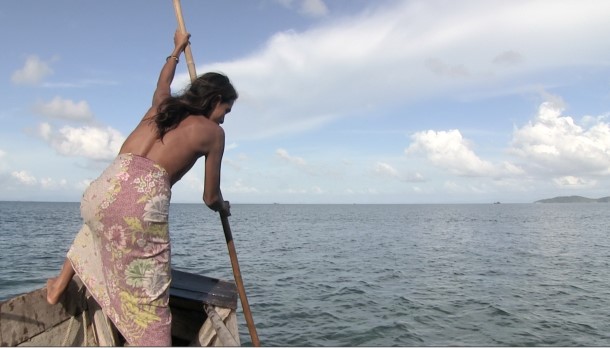YANGON — The Upper House on Wednesday endorsed a proposal calling on the government to establish a protected cultural area for the ethnic Moken (or Salone) people in Tanintharyi Region’s Myeik (Mergui) Archipelago.
An Upper House committee tasked with scrutinizing the work of the government’s Guarantees, Pledges and Undertakings Vetting Committee on Monday submitted to the chamber a report in response to lawmakers’ questions and motions on the issue. The panel’s recommendations include providing urgent protection for the Moken, a semi-nomadic group who mostly live off the sea and are now considered a “vanishing minority” among Myanmar’s 135 officially recognized ethnicities.
The parliamentary committee made field visits to Tanintharyi Region on May 8-17 and compiled its findings and recommendations for the government.
The report urges the government to designate specific islands as being exclusively for use by the Moken (Salone) and to control migration into their communities, warning that an influx of outsiders threatens the survival of the indigenous Moken people’s way of life.
U Thein Swe, the chairman of the Scrutiny Committee, said on Wednesday, “Urgent steps are needed to protect the culture as well as the civil rights of the Salone people, who are in danger of disappearing.”
He said the committee members listened to the Moken’s concerns during the field visits, and at workshops with Moken people from Ma Gyone Galet village on Bo Cho Island. The 1,800-acre island is located opposite Lampi Island in the Lampi Marine National Park.
Some 2,000 Moken continue to live on some 800 islands in the southern Myanmar archipelago of Mergui. Along with protecting the Moken people, the lawmakers urged the government to consider steps to protect the islands’ natural environment and reconsider some projects under way there.
“These islands are small and some of them are still pristine; thus we urged measures to preserve these natural environments,” U Thein Swe said.
He told Parliament that, “The Moken residents of Ma Gyone Galet village were previously from the Pearl Islands, as the Moken practice a nomadic way of life, moving from one island to another. They don’t have official land-ownership documents. Now, more people are settling in their villages and taking ownership of their land in the names of companies, organizations and individuals. We witnessed that the local indigenous Moken communities’ lands are shrinking. Therefore, they need [the government’s] protection in special zones to preserve their culture.”
U Khin Win, an Upper House lawmaker for Magwe Region’s Constituency No. 2, urged the government to take immediate action to halt the unchecked granting of land ownership to companies in the area as cited in the report.
Due to the loss of their way of life, according to the report, Moken have been migrating to Thailand, where they can find housing, education and healthcare support.
“The Salone or Moken are one of the nine sub-tribes of the Bamar, and if our country can help the Salone, it would not only protect them, but also have great benefits for our tourism sector,” said military-appointed lawmaker Major Kyaw Soe Oo.
While lawmakers of all parties generally agree that the Moken’s culture and population need protection, Maj. Kyaw Soe Oo said it was unnecessary to set aside special areas or bar outsiders from entering Moken communities. He said actions based on the committee’s report must not violate Article 355 of the Constitution, which states that “every citizen can stay in any part of the country in accordance with the law.”
However, Upper House Speaker Man Win Khiang Than decided the report’s findings do not violate the 2008 Constitution and the report was eventually approved.

















